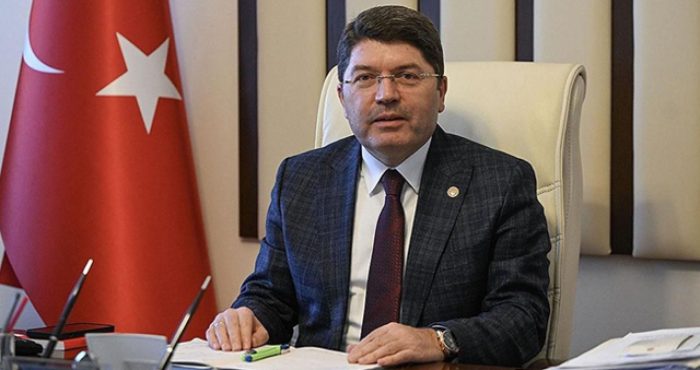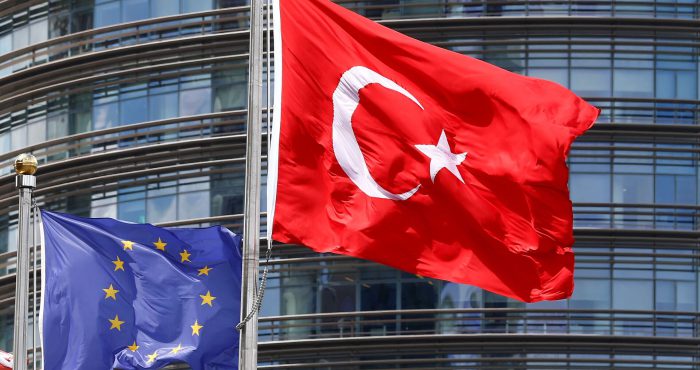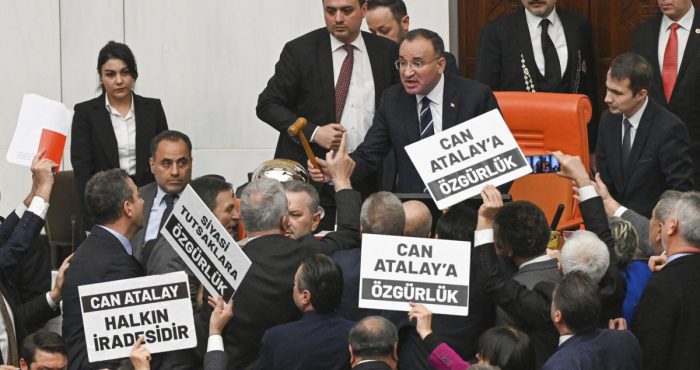It is perfectly understandable and to be expected that Mr Erdoğan has personal opinions, however as President of Turkey these can have widespread impact. Therefore, in light of this, he must demonstrate a respect for the beliefs, ideas and choices of all Turkish citizens, including political opponents, foreign leaders and political influencers in general.
Mr Erdoğan has always stated that he believes consultation is important in his duties to serve the people. However, I would argue that consultation does not go far enough. Instead, he must both ask for and willingly receive honest feedback in order to serve, rather than rule, the people. Indeed, an important, but fine, distinction must be made here. In consultation, employees are asked a pre-conceived set of questions and answer in a manner that they think the leader would like. By contrast, in feedback leaders do not ask a specific set of questions but choose to listen to their employees, regardless of the content. Executives at global multinational corporations have found that encouraging employees to give sincere and rounded feedback aids their success. This style of ‘reverse mentorship’ can help executives understand the valid concerns and points of view of their more junior colleagues.
Recent Turkish history offers a plethora of examples of the damage that can be done when leaders are deaf to the concerns of their colleagues.
Interest and Inflation:
Mr Erdoğan’s inflexible belief in low interest rates has had a significant impact upon the Turkish economy. He has stifled those who hold different views to himself and his juniors have not offered up truthful opinions. Given that Turkey has adopted a Western-style market economy, which places emphasis on capital and interest, this iron-willed belief in low interest rates is a dangerous one. Unlike leading modern economists, Mr Erdoğan sees high interest as the cause of, rather than a remedy for, inflation.
In May 2018 he gave a speech in London to leading financial thinkers, in which he expressed he may be willing to exert pressure on the Central Bank in order to suppress interest rates, fundamentally undermining the independence of the institution. This worried lenders and caused the Lira to weaken against major currencies. It required a meeting organised by Mr. Mehmet Şimşek, then Minister of Economy, and Mr. Murat Çetinkaya, the Central Bank Governor, to help remedy the situation. However, when Mr Erdoğan appointed his inexperienced son-in-law as the Turkish Treasury and Finance Minister, in the place of more competent and experienced candidates for the post, this was construed by international figures as being a further sign that Erdoğan was reducing the independence of Turkish economic institutions. This again resulted in a fall in the value of the Lira. All of this evidently demonstrates that had Mr Erdoğan asked for feedback from his juniors and critics on this issue of interest rates and appointments, then economic grievances could have been avoided.
About Judicature and Justice:
Similarly, the arrest of Andrew Brunson, an American pastor, in Turkey following the 2016 coup d’état attempt resulted in the US placing economic tariffs on Turkey. Mr Erdoğan attempted to exchange Brunson for Fethullah Gülen, however this was unsuccessful, and Mr Erdoğan’s unwillingness to release Brunson brought sanctions. Turkey was obliged to pay more for imports and to deliver double the amount of commodities for our export goods. Inflation and unemployment rose (and the latter continues to do so), economic growth stopped, and a recession began. More importantly, Turkey was forced to pay an interest rate 2.5 points above the usual interest rate to be able to borrow loans from foreign lenders. Turkey was simultaneously required to make a surplus payment of approximately 57 billion Lira for imports.
Mr Erdoğan has been consistently criticised for not reforming the judiciary to make it function independently and impartially, as he promised on his election campaign trail. The courts do not function efficiently – for example, they often cannot complete trials during the first hearing. Had the court been able to manage Mr Brunson’s case without abating the trial, and cross-examined the witnesses publicly, resulting in an earlier and more timely conviction, Turkey may have been able to negotiate with the US from a legitimate platform. This would have potentially resulted in an exchange of Brunson for Hakan Atilla, who was condemned by the US. Instead, the lengthy trial resulted in the international perception that the conviction of Brunson was in retaliation for the conviction of Hakan Atilla.
Mr Erdoğan should have upheld his election promises and taken into consideration the feedback of those in the field. He could have improved trial procedures and eliminated some practices hindering the completion of trials in a single hearing, in strict compliance with the established international rules and principles. He could have both enhanced the Turkish judicial system whilst simultaneously strengthening his own hand in the international arena.
A good leader should serve his people through feedback, but sometimes they make mistakes and rule through consultation. Mr Erdoğan must take steps to listen to all segments of Turkish society, to which he is accountable, including opinions that differ from his own. This is the only way for Turkey to progress and develop under his premiership.




